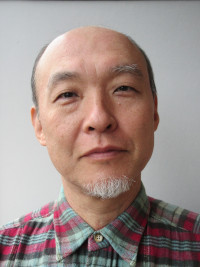Message from the Dean
“Pluralistic intelligence”
 MARUKAWA, Tetsushi
MARUKAWA, Tetsushi
The problems of modern society are becoming increasingly complex and serious. We have been optimistically thinking that wars and disasters were overcome in human history. However, the nuclear power plant accident, the COVID-19 pandemic, and recent wars have revealed that this is not true. It has been shown that these issues cannot be solved without cross-over analysis rather than independent analysis methods such as science analyzed in the science, social science analyzed in the social science, and humanities analyzed in the humanities. What is required these days is the pluralistic intelligence that lets us think by linking separate methods and domains. This graduate school has three segments: “Philosophy, Thought, and Religion,” “Culture,” and “Peace and the Environment.” But students can attend classes of other courses or be taught by specialists from other courses while in their primary course. In addition, each course has a pluralistic system. For example, in the Philosophy, Thought, and Religion Course, you can learn European and Oriental thought at the same time, and the Culture Course gives you a direction to compare Chinese and Japanese culture, and European culture. In the Peace and the Environmental Course, fieldwork-based research and fundamental research can be combined.
Let’s look at an example of the cross-over analysis I mentioned earlier to see what kind of research can be done. One example is the Olympics and Paralympics. Of course, it can be discussed in the domain of sports culture, but as you can see from the history, the Olympics and Paralympics can be also an occasion where national politics is promoted, and since the 1980s, it has become a festival in which international capital is extremely involved. Also, the Paralympics were originally an opportunity for people who were injured in a war. The Olympics and Paralympics, then, cannot be fully understood in terms of the nature of the event without combining approaches that mobilize history, politics, economics, and media. Let me give you another example. Today, the acceptance of subcultures has greatly increased, but it is also possible to recognize them as signs of “illness” or “wish” in modern society, rather than simply as preference. For example, the sci-fi movie genre can be seen as a modern variant of ancient myths. In the first place, the origin of theater lies in the extension of worship offered to ancestors and gods, and thus it can be interpreted that it has been mixed into modern culture.
Finally, I would like to give an example to differentiate this graduate school from other graduate schools. This graduate school includes philosophy of science and history of science, but generally, it is similar to the Graduate School of Arts and Letters. For example, in the study of conventional literature, study of the literary expression of such figures as Natsume Soseki and Lu Xun is representative. Even in such conventional studies, this graduate school allows cross-over analysis. For instance, Natsume Soseki and Mori Ogai are classified as Japanese literature, but they were also very familiar with classical Chinese literature, and wrote several interesting descriptions about what they experienced abroad and their impressions of exchange. In other words, the interesting part exists outside the frame of “Japan.” The same applies to Lu Xun and Zhou Zuoren, Chinese writers who studied in Japan. For example, Lu Xun was influenced by the Nietzsche boom in Japan at that time rather than Japanese culture itself. Lu Xun’s younger brother Zhou Zuoren was inspired by the “New Village” movement by the Shirakaba-ha at that time, and he also established a branch of “New Village” in Beijing, where young Mao Zedong came to ask for instruction. Modern Chinese literature is thus connected to social movements in Japan and China. From this viewpoint, there is a possibility of new discoveries if we remove the traditional institutionalized perspective of the School of Arts and Letters. “Pluralistic intelligence” mentioned in the title has this meaning.
Tetsushi Marukawa, Doctor of Philosophy and Dean, Graduate School of Humanities


